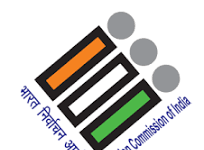
Availability of clean water in sufficient quantity is a key component of Jal Jeevan Mission.
Swachh Jal Se Suraksha (SJSS) campaign was launched by the Union Ministry of Jal Shakti for the availability of safe and clean water.
Madhya Pradesh has been included in the leading state in the report of the campaign.
Congratulating for this achievement, CM Shivraj Singh Chouhan said that the Madhya Pradesh government is working pacingly on Prime Minister Narendra Modi’s resolution to provide pure water to every household. The achievement of Swachh Jal Se Suraksha campaign is another strong example of the public-participation model of development of Madhya Pradesh.
CM Chouhan said that the government and citizens are moving ahead on the path of progress shoulder to shoulder in Madhya Pradesh.
Minister of State for Public Health Engineering Brijendra Singh Yadav has congratulated the officers and employees of the department, citizens and all the women who ensured their effective participation by getting testing training on this achievement.
The water quality monitoring and inspection activities of the States/UTs for the period from October 2, 2022 to March 31, 2023 were evaluated in a nationwide campaign by the Ministry of Jal Shakti. A report has been issued after assessing the performance of the States/Union Territories in the campaign.
The campaign aims at widespread public participation at village, district and state level for water quality testing and creating awareness about water quality. The campaign includes testing of PWS sources in all villages for chemical parameters and bacteriological parameters (post monsoon), household water quality testing in villages, water quality testing in schools and anganwadi centres, remedial work done for contaminated samples, training of women to conduct water quality testing using FTK/H2S kit at village level etc.
Water quality testing was done in 51 thousand 129 (99.44 percent) villages for chemical parameters and 50 thousand 932 (99.06 percent) villages for bacteriological parameters (post monsoon) in Madhya Pradesh during the campaign.
A total of 94 thousand 294 (95.2 percent) drinking water samples were tested in schools and 58 thousand 464 (95.62 percent) in anganwadi centres.
Women in 42 thousand 595 villages were trained to conduct water quality testing using Field Testing Kits (FTK). Also, out of 11 thousand 606 contaminated samples reported, remedial action has been taken for 11 thousand 505 (99.13 percent).




